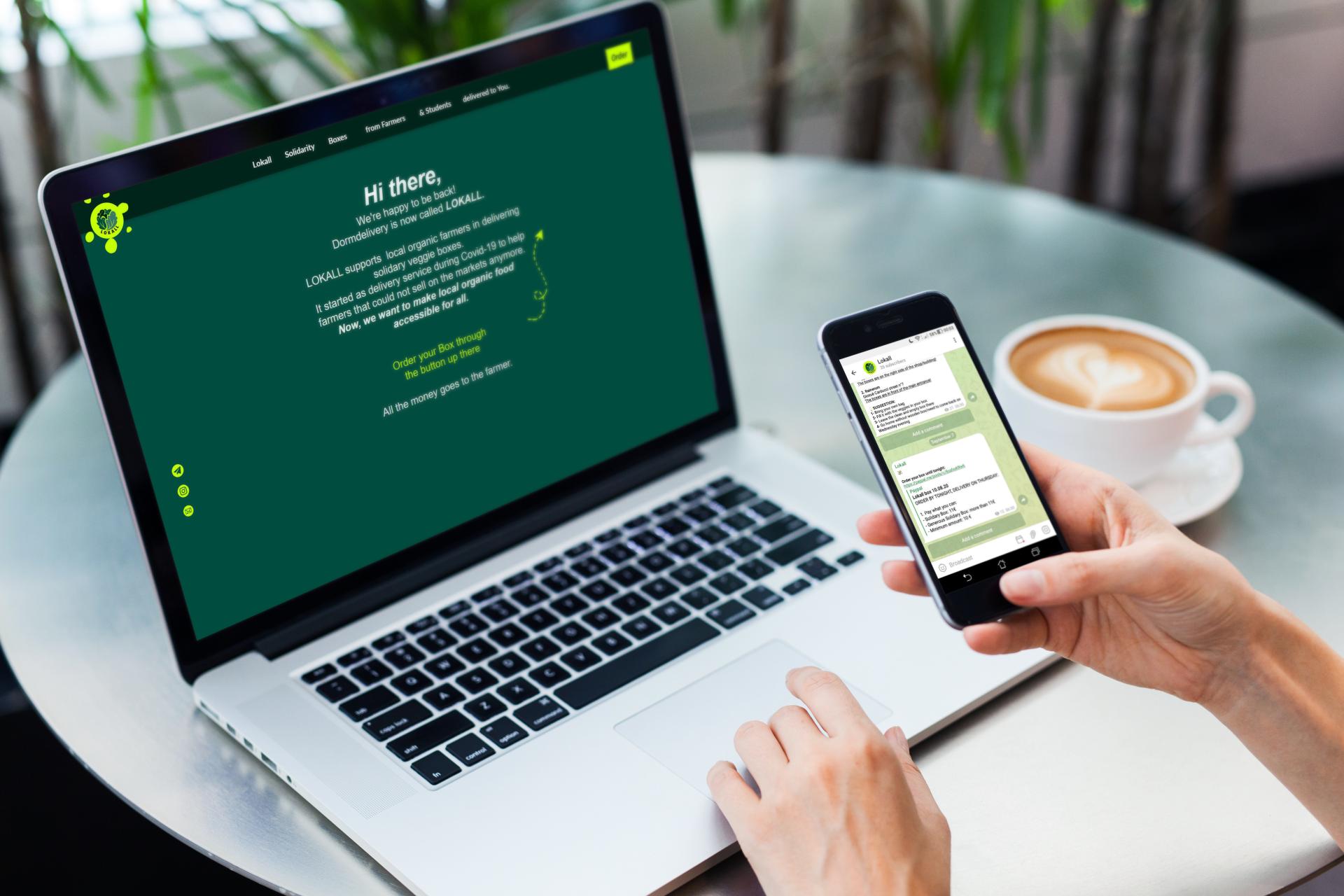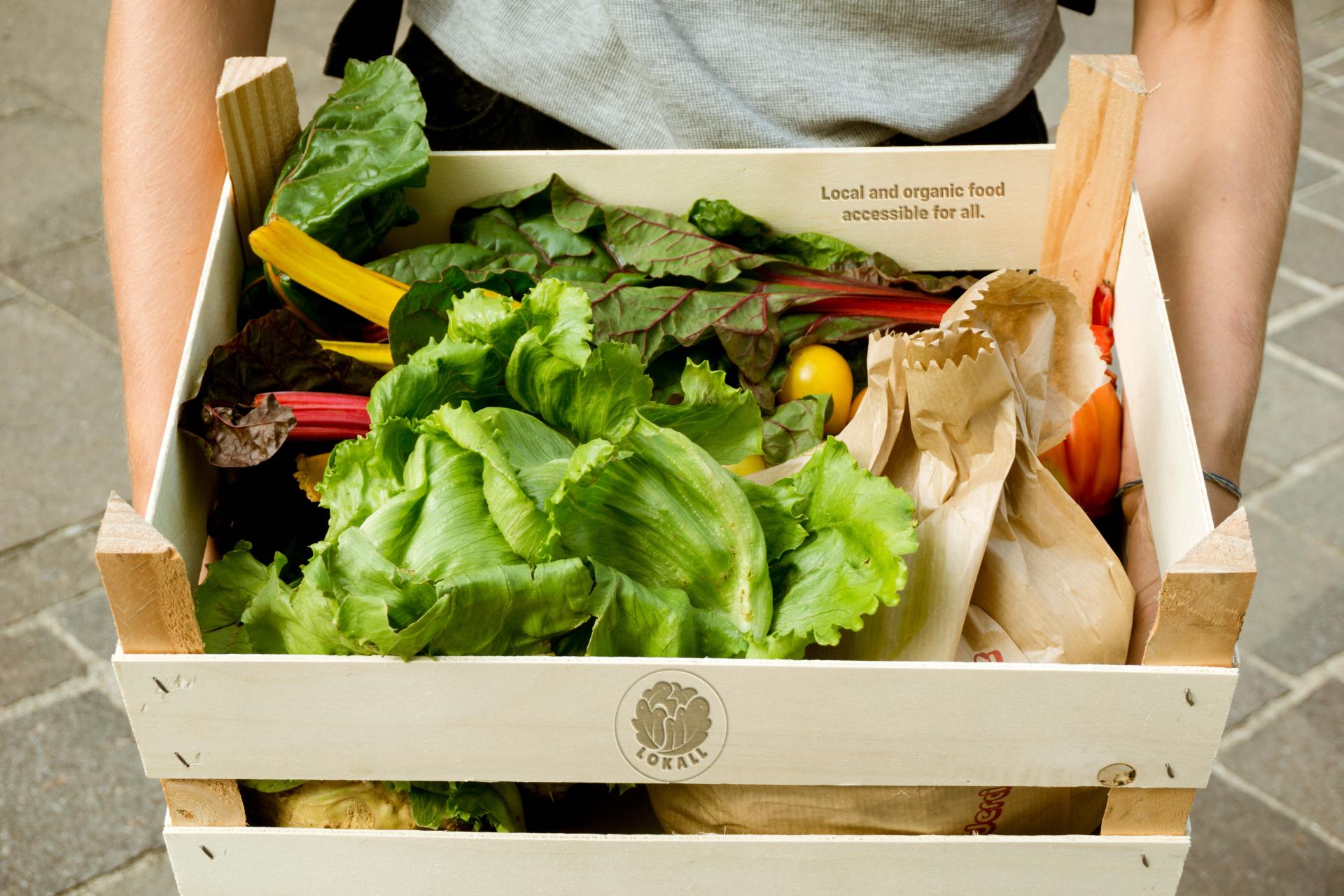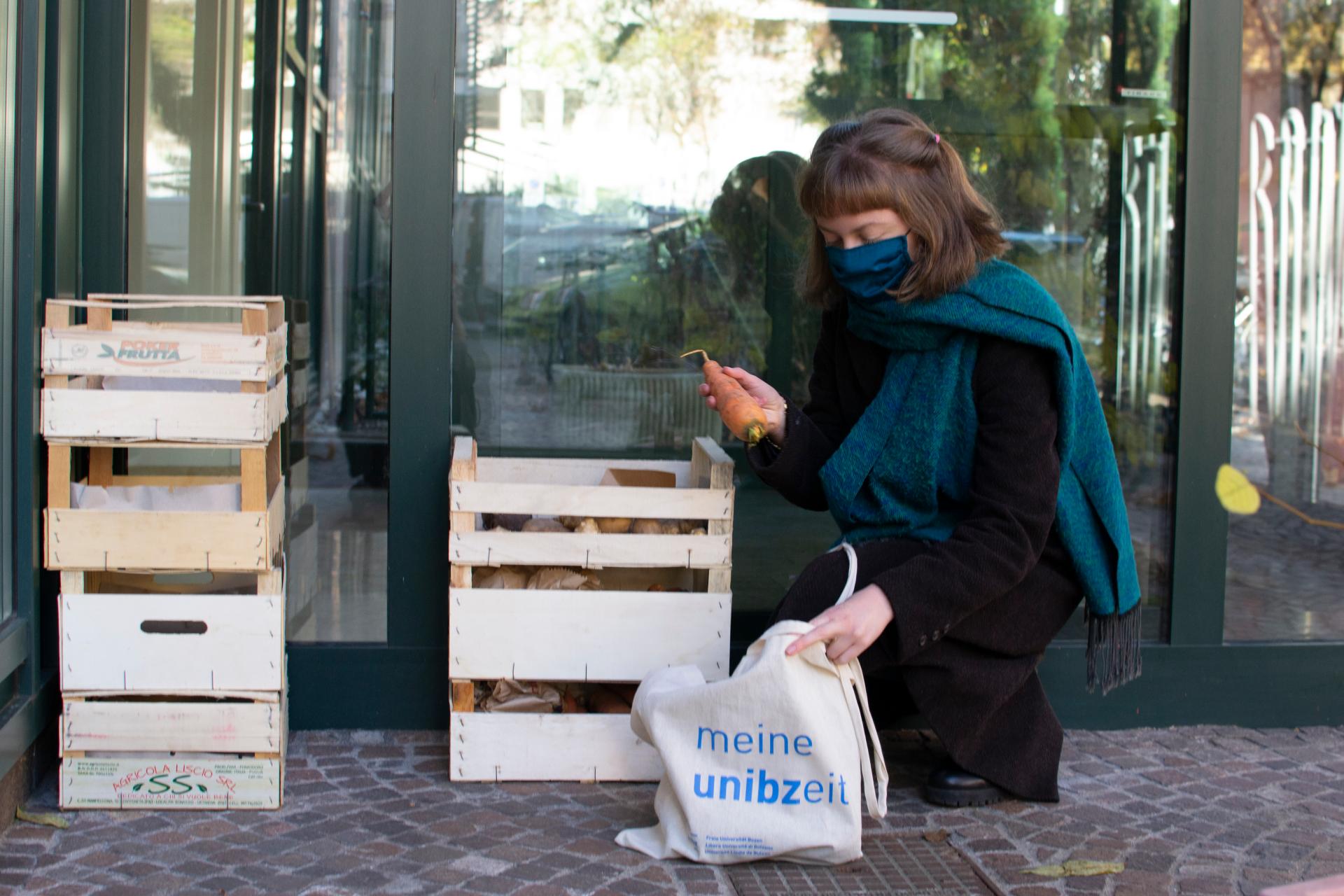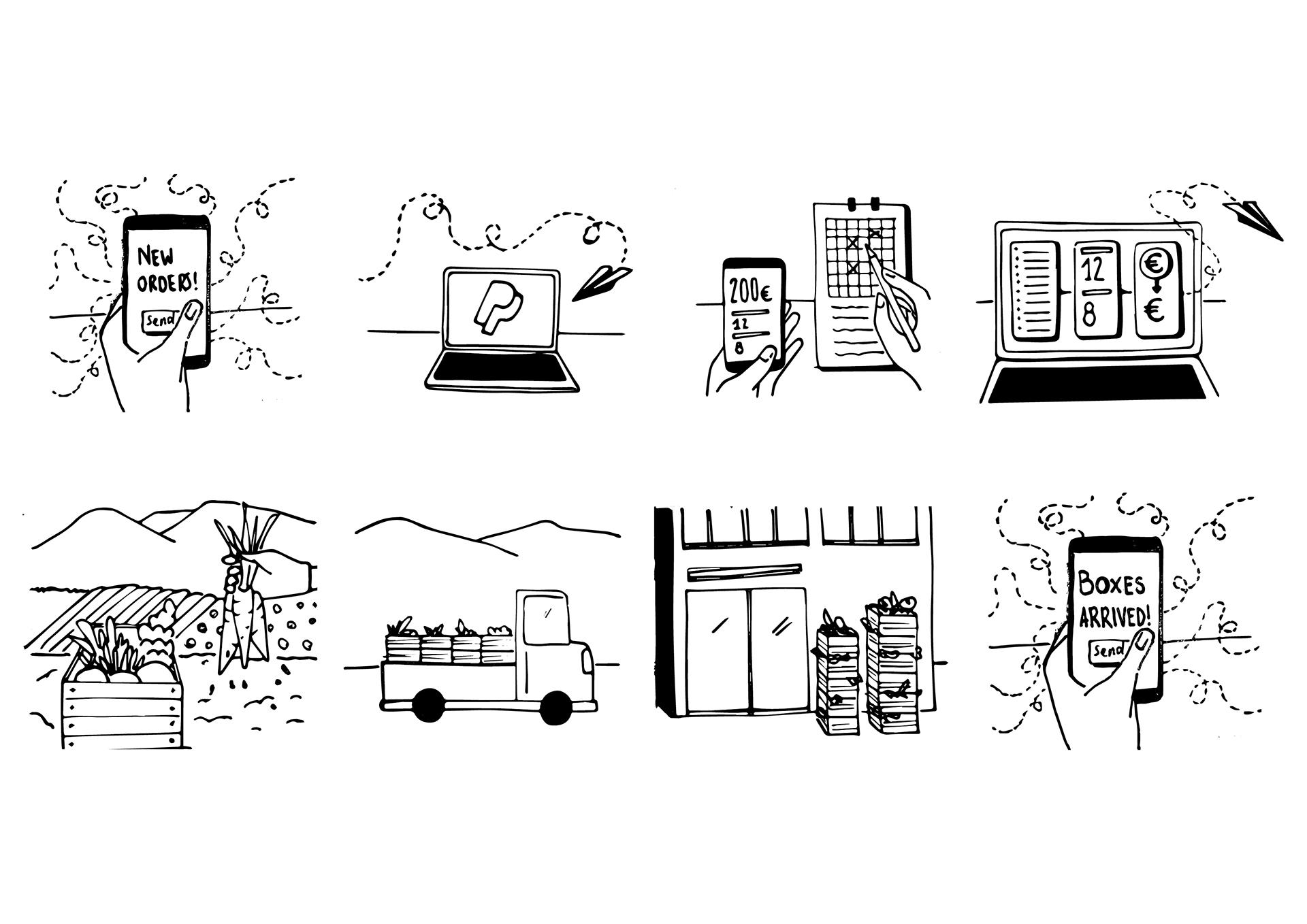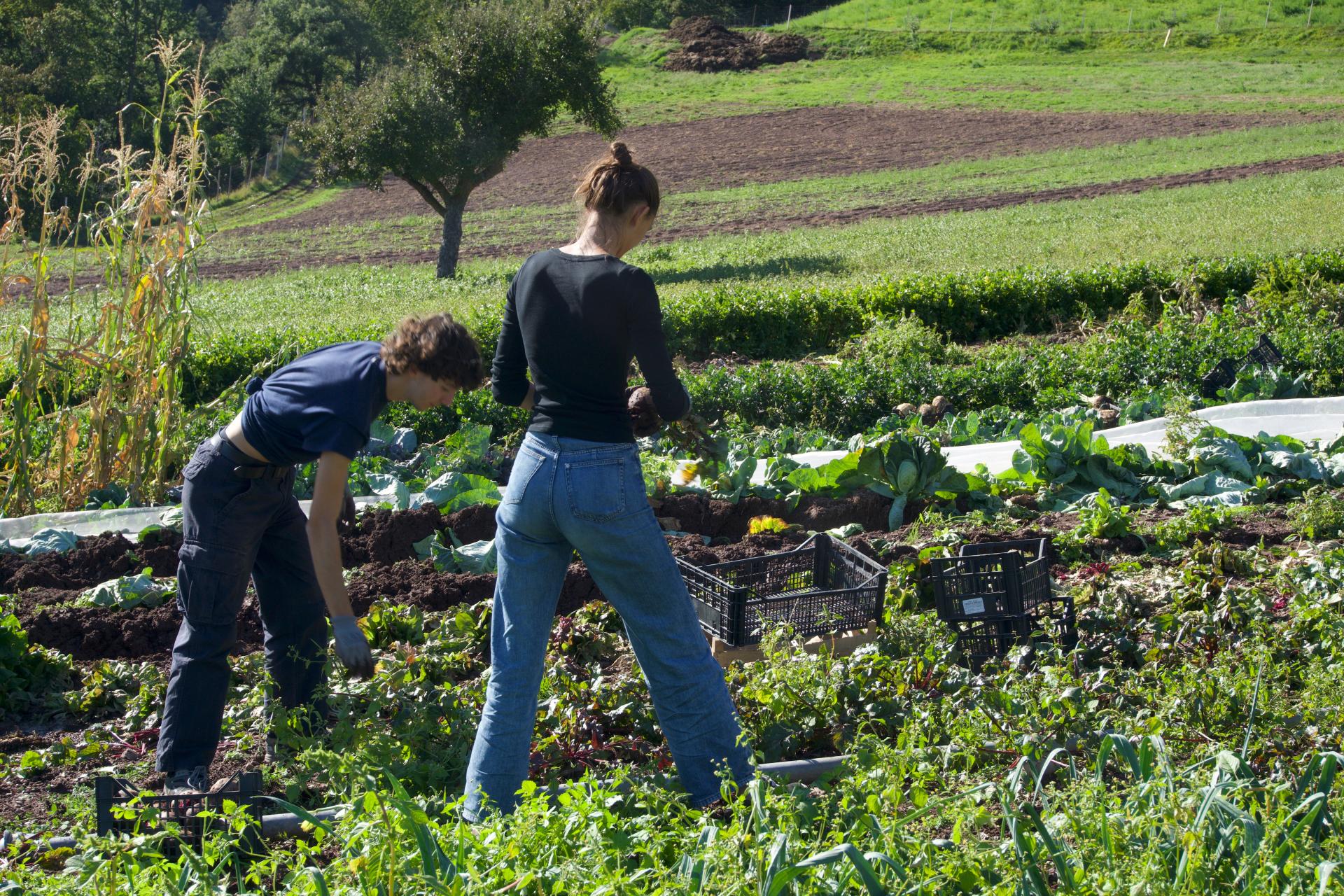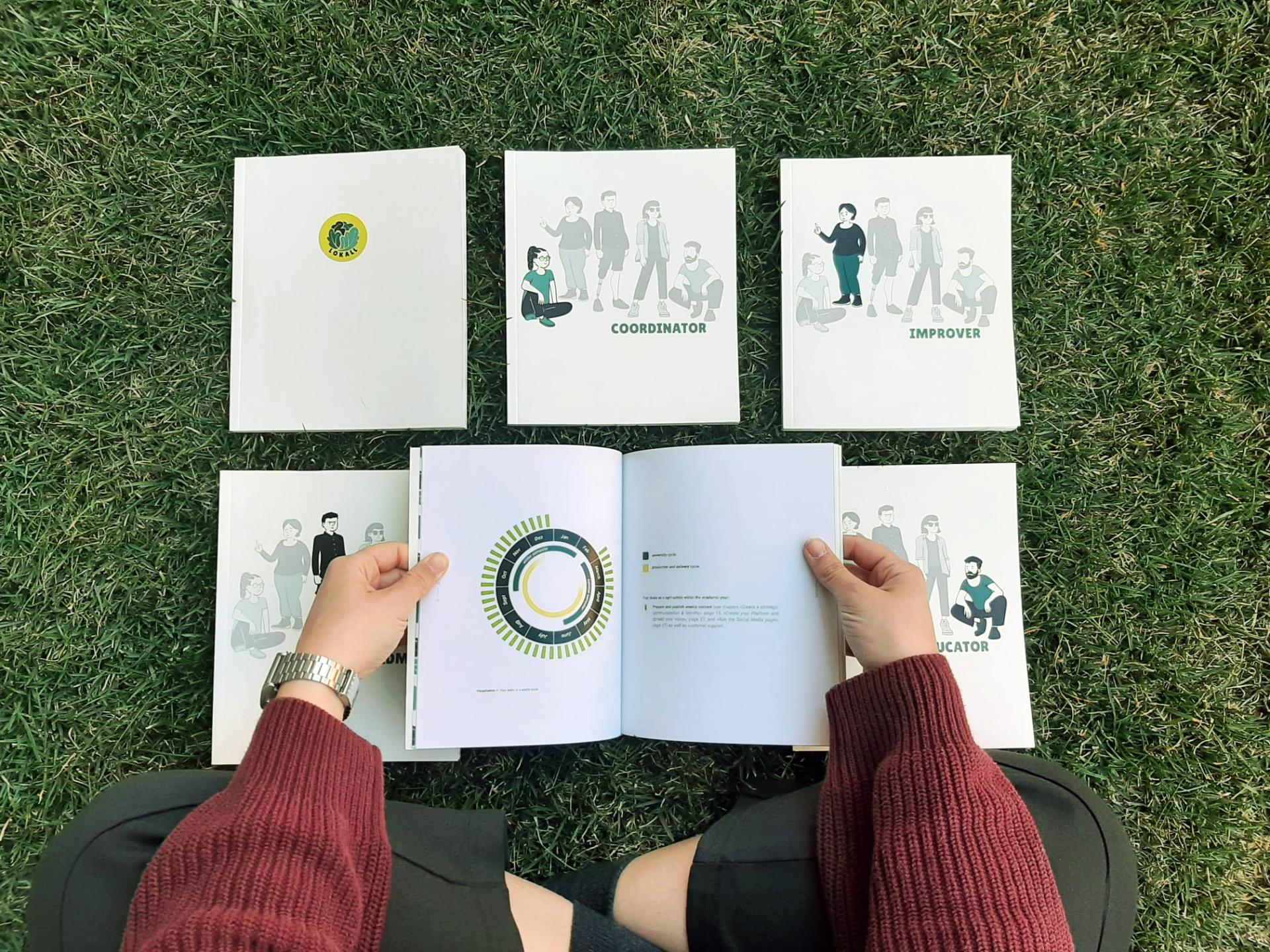Lokall
Basic information
Project Title
Full project title
Category
Project Description
Lokall is a solidary-based vegetable delivery service, that answers to the pandemic-related needs of three different communities: It creates accessibility to healthy food for those in need, a feeling of belonging for those who were isolated, and new revenue for farmers that could not sell their products anymore. It is run by students and volunteers and aims to make local organic food accessible to all, while spreading the importance of ethical, sustainable, and local food production.
Geographical Scope
Project Region
Urban or rural issues
Physical or other transformations
EU Programme or fund
Which funds
Description of the project
Summary
Lokall remodels food procurement on a local scale. Its core is rooted in a solidarity-based and community-organised vegetable box delivery service that is reducing social, environmental and economic injustices that have been exacerbated by the pandemic.
The service is based on synergies between producers, community and territory, creating a system that takes responsibility for each other's needs:
- Accessibility: With Lokall, sustainable food procurement is our common goal rather than a financial privilege. It’s economically inclusive to different incomes and abilities by offering a range of value exchanges based on labour and money, flexible to the needs of the producers and consumers. For those in immediate need, vegetables are provided completely free of charge through community-based solidarity.
- Community: In order to counteract isolation and the feeling of hopelessness that have been pertinent in the last two years, a community is the foundation of Lokall, creating positive interactions and learning experiences among all its participants. Providing the framework for transdisciplinary and participatory development, Lokall invites everyone to participate according to their possibilities and interests, ranging from purchasing a vegetable box to sharing knowledge to organising the service.
- Fairness: The community service was launched in the first COVID lockdown to help farmers navigate the transitional regulations and avoid food waste despite the closure of markets. Through Lokall, consumers take responsibility for reducing the work and precarity of farmers by organising marketing, sales and urban distribution voluntarily as well as by helping on the fields when needed. The boxes are filled with what is available, allowing the farmer to consider territorial needs rather than market demands.
- Replicability: Lokall actively supports its recreation in other contexts, creating many small transformations that collectively aim for system change in food procurement.
Key objectives for sustainability
The objective is to spread sustainability through solidarity via the creation of an alternative, cooperative and circular food network, contributing to food sovereignty. In fact, at the beginning of the pandemic, this need emerged even more for low-income citizens and farmers in the city of Bozen-Bolzano. The sustainable measures of Lokall in detail:
- Cultivation and Harvesting: Done by local, small, organic farms, to guarantee biological, seasonal and km0 food procurement.
- Processing and packaging: Any food processing is done directly on the farm or in consumers' houses. Packaging is limited to reusable wooden boxes that are returned weekly to the pick-up points in the city.
- Storage and distribution: The supply chain is short (max. 20km/30min delivery time, from the farm to the pick-up points), involving a direct connection between the community and the farmer. Therefore, CO2 emissions are reduced due to near distribution.
- Consumption: Food consumption becomes slower and more educational. As part of a transparent supply chain, participants learn from each other and develop critical thinking skills about food. They learn as well the importance of biodiversity and a vegetable diet and its ecological footprint. In addition, the project initiative allows more people to consume organic and local food, through community-based solidarity.
- Disposal of food: Food that would be discarded (e.g. substandard vegetables and fruits) is included. Community-educational sessions teach methods of food conservation and creative food reuse are shared.
In constant exchange with all participants, we continuously educate ourselves in order to maintain and improve the flexibility of the ecological and economic sustainability of the initiative. A tool created along the project, the eValueation tool, helps us assess effectively the status and improvements of it.
Key objectives for aesthetics and quality
Lokall actively arranges the creation, development, and dissemination of self-organised food networks in other settings. For this reason, it is based on a simple and flexible process, that everyone can access and replicate. Accordingly, all decisions regarding communication channels, touchpoints, platforms and aesthetics were chosen to generate a functional, easy-to-use, accessible, and replicable service that allowed contactless organisation within the pandemic.
In particular, co-design processes and community-based decision-making led to the usage of platforms:
- WordPress website: easy to modify, no coding skills needed
- Instagram: as it is highly used by participants
- Telegram channel: to receive notifications about the orders, without an additional app
- Paypal: accessible to all kinds of cards, even without a Paypal account
To further support the replicability, a manual was created that divides the process of founding and managing Lokall in five roles: the coordinator, the improver, the agri-admin, the spreader and the educator. A chapter of the manual is devoted to each role, directly addressing the prospective participant with a combination of instructions and process documentation. The objective is to give an open-source guideline to:
- Start with an easy and explained process, already tested
- Encourage and support others in forming their food networks, also in other cities
- Offering tools to improve it over time, and make it work
The manuals establish a circular process in the respective communities. They explain how to carry on the service in one-year cycles, and how to pass the baton to the future community as the project evolves. Tools and formats are provided, to evaluate and continuously keep track of problems and improvements.
The key aim is to simplify the development of local, bottom-up, niche innovations whose creation often bring complexities on many levels, discouraging their formation, or encouraging their premature failure.
Key objectives for inclusion
Lokall means local and organic food for all. The project includes citizens with diverse incomes and abilities, providing more people with the opportunity to consume organic and local food. Food sovereignty is a core value.
Lokall involves local producers and interested citizens who want to volunteer their energies to help lower costs of organic food, through a principle of solidarity. For example, through small solidarity contributions with each order, or through specific generous donations, the money is collected to provide food at reduced prices or completely free of charge each week. The donations collected through the community-based solidarity, furthermore, are given in the form of vegetables to the Vinzimarkt. This is a grocery store in Bozen-Bolzano for people at risk of poverty and depends on food donations.
The Lokall service works in a very simple way: you order and pay for a box online, a farmer brings the box in front of the pick-up points in the city centre once a week. The solution is intended to be convenient and affordable for the community. It is also a fair service for the farmer, who decides a just price for him/her. Additionally, when the farmer needs help on the field, collective harvesting days are organised. The community, while helping, get to know the farmer, vegetables and territory. In return, they get free boxes. In this way, the community is reinforced and knowledge is shared.
Besides this, there are other chances for the community to meet: during events and aperitivi. These gatherings are organised throughout the year, by the Lokall team and the partners. Nevertheless, these gatherings were also organised online, together with the format “What the **** is this?”. This was designed under the suggestion of the community, willing to know more about the vegetables, how to cook and conserve them better. In general, participants, farmers and partners were engaged during all the development phases in the co-design.
Results in relation to category
Initiated during the first lockdown in March 2020 and over the span of the first nine months, Lokall worked with three farmers and helped deliver 304 boxes with over 984kg of food to a total of 84 participants. In the process, €3’289.5 went into the local economy, as well as weekly food donations to people in need through a partnership with a local reality that aids people at risk of poverty.
Online and offline events were organised to create community, combat isolation and collectively understand the local food production and the importance of caring for territorial needs.
Ten community working days on a farm were organised, helping and learning from the farmer. Afterwards, one participant gave us the following feedback: "My experience with Lokall was eye-opening. [...] Learning what a "typical day on the farm" looks like made me realise the effort that farmers put into their activities every day, showed me a reality that is less polished and ready-made. This new knowledge was accompanied with lots of fun, new people and beautiful places and it was certainly a great way to reconnect with Bolzano and its surroundings after months of quarantine and self-distancing!"
For the second cycle of Lokall, five new volunteers have been scouted and trained. They have since been improving the community service by continuously making it more sustainable, inclusive and solidary, and are preparing to give the baton to the next cycle of motivated people.
Lokall has participated in the SIAA, an Impact Hub to promote social entrepreneurs, and has been awarded 1st Place for its innovative solutions. Lokall has been used as an example on various occasions to promote social niche innovations (eg included in the exhibition "How will we live together?" at the Biennale di Architettura Venezia (2021). In addition, we held workshops, speeches and consulted other groups to help them to define themselves, their goals, and create respective communities and solidarity-based services.
How Citizens benefit
Lokall is a self-organised supply chain that is entirely organised by its community. It creates a flexible framework in which farmers, students, citizens, businesses and corporations are actively involved in the continuous development of the community service. Lokall has revealed the need for creativity in our food sector and creates opportunities for continuous collective activism and self-initiative.
The degree of participation varies according to the abilities and interests of the actors and can be temporary or long term. There is a core organisational team and a broader community. With a self-directed teaching-learning system, tasks and roles are passed from participant to participant. The spectrum of participation includes but is not limited to:
- Buying a vegetable box
- Solidary donations
- Helping with urban distribution
- Organising events
- Giving and implementing feedback
- Accumulating and spreading new knowledge
- Collective prototyping
- Improving the service with respective skillset
- Helping with manual labour
- Taking an active role in the organisational team
- Spreading the word through speeches, workshops, conversations
- Becoming a partner, supporting the cause
Participation is essential to the project and creates the following benefits to the community:
- A sense of belonging: to a collective, getting to know like-minded people that want to help others, thus feeling less isolated and helpless in the pandemic
- New relationships and empathy: between rural and urban actors. Therefore, enlarging the spreading of sustainability through solidarity, with a stronger network
- Collectively learning: about the work of organic farmers and the traditional regional food culture, while promoting sustainable and solidary habits linked to it
Participation in Lokall, therefore, does not only ensure the community service to run, but that synergies and mutual help always remain at the core of the project.
Physical or other transformations
Innovative character
Lokall is an innovative way to deliver food and connect people in times of health emergency. Moreover, the community service focuses on social processes and systems that collectively strive for holistic sustainability based on ecological, solidary and inclusive values:
- Solidarity and inclusion: Food procurement is not seen as a private matter but as a collaborative common. People at risk of poverty and low-income citizens, as well as isolated, elderly or otherwise disadvantaged people, are supported through a community.
- Commitment and holistic caring: The initiative is entirely based on voluntary participation and is motivated by driving ecological and social change through collective approaches, the consideration of territorial needs and common good management.
- Participatory approach in the local economy: Farmers, students, citizens, institutions, cooperatives and businesses work together within a flexible framework. All stakeholders are actively involved in the development of the initiative to ensure that synergies and mutual help remain at the core of the cooperation.
- Flexibility: Immediate formation in a moment of emergency, able to continuously adapt to the versatile needs of all participants and territory.
- Horizontal networked structure: Fostering a network of people from Bozen-Bolzano who want to proactively find creative ways to create new inclusive habits and learn collectively from moments of exchange.
- Replicability: The active encouragement of Lokall’s re-creation in other settings through workshops, presentations, consulting and a manual fostering mutual effort of multidisciplinary and diverse groups.
- The diversity of goals and impacts in different areas: Through Lokall, people find themselves wanting to create positive things together, both in the midst of a pandemic and after.
Learning transferred to other parties
The dissemination of self-organised food networks among citizens, initiated through Lokall’s model, is a step towards raising communities' understanding of eco-social issues. This is a fundamental phase, through which citizens acquire more and more awareness and power in political decisions, necessary for a real and solid change towards the systemic transformation of society. A society where sustainability is a right to everyone. How?
The learnings gained from the development and testing of Lokall, collected in the manuals, provide an incentive for the initiation of similar realities in different communities. These communities have so far been constituted starting from universities, by including Lokall in students’ activities, making it possible to connect with other realities through diverse channels, e.g. to have presentations in partner universities. Another one of the channels was the collaboration with the International relations office. Thus involving Erasmus students who experienced Lokall in Bozen-Bolzano, but then became the initiators of a similar food network in their respective universities. Within this strategy, Lokall’s framework has already been applied in Trento, Rome and in Portugal.
Further, a workshop format has been created and implemented that works in an online setting and functions as a catalyst to inspire different actors in various countries, with whom a consultancy phase is being initiated.
In addition, we actively pursued media exposure through the newspaper, radio, online formats and exhibitions. The potential is that in urban and rural areas self-organised networks could multiply, creating a continuous system of production, distribution and collective learning. Slowly, dealing not only with making organic vegetables accessible to all but also with other sustainable local products. Consequently, neighbourhoods in cities and towns will become independent from large-scale distribution, including everyone, without any discrimination.

